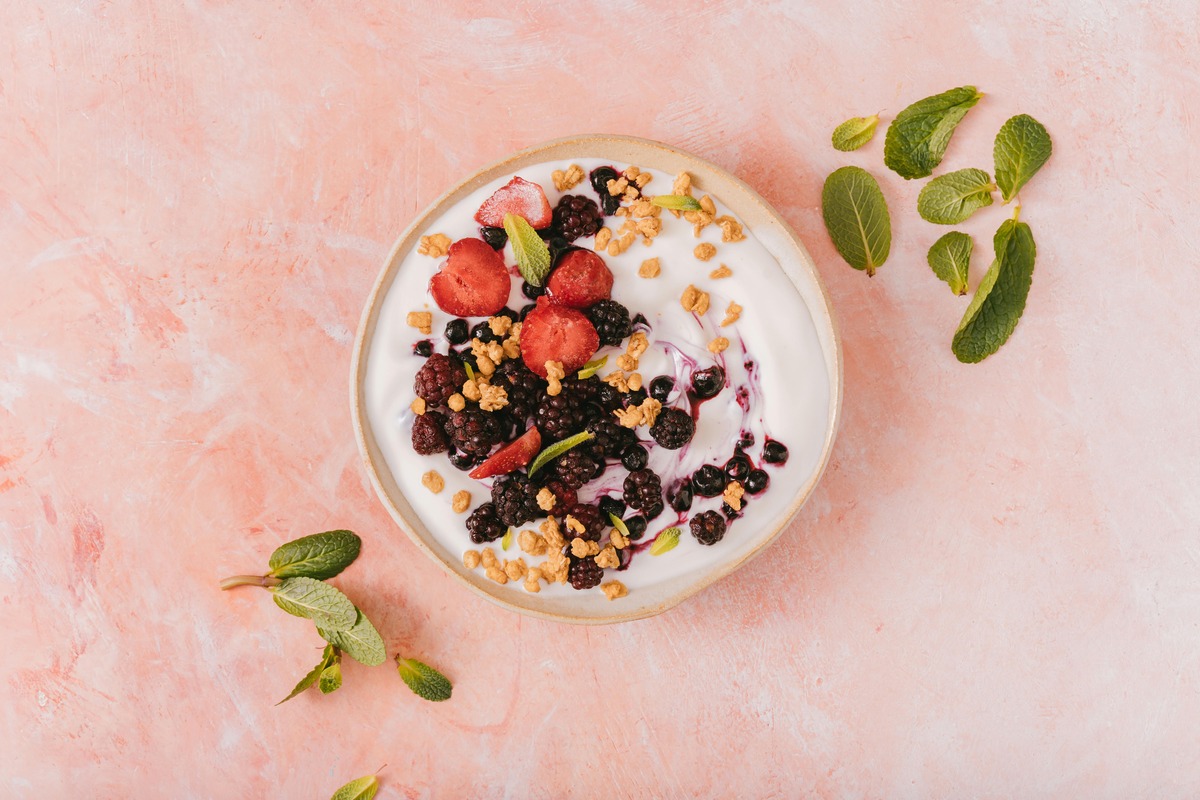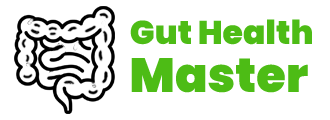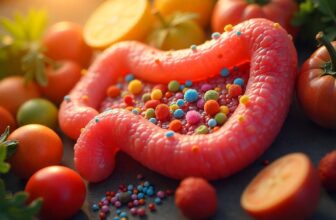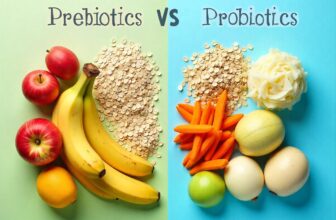
Has your recent course of antibiotics left you feeling off-balance, dealing with digestive issues, or experiencing unexpected food sensitivities? You’re not alone. While antibiotics are crucial for fighting bacterial infections, they can disrupt your gut’s delicate ecosystem, affecting not just your digestion but your overall well-being. 🦠
The good news? Your gut can bounce back stronger than ever. Whether you’re dealing with post-antibiotic bloating, irregular bowel movements, or simply wanting to restore your digestive health, there’s a science-backed path to recovery. From selecting the right probiotic-rich foods to implementing strategic lifestyle changes, we’re about to explore proven strategies that can help rebuild your gut microbiome.
Let’s dive into the essential steps you need to take to restore your digestive health, starting with understanding how antibiotics affect your gut and moving through practical, actionable solutions you can implement today. 🌿
Understanding Antibiotic Impact on Gut Health
How Antibiotics Disrupt Gut Flora
While antibiotics effectively combat harmful bacteria, they simultaneously eliminate beneficial gut bacteria. This disruption affects the delicate microbiome balance, impacting essential functions like:
- Nutrient absorption
- Immune system regulation
- Digestive enzyme production
- Barrier function maintenance
Common Digestive Issues Post-Antibiotics
| Issue | Symptoms | Frequency |
|---|---|---|
| Diarrhea | Loose stools, cramping | Very Common |
| Bloating | Abdominal distension | Common |
| Candida overgrowth | White tongue coating | Moderate |
| Food sensitivities | Digestive discomfort | Common |
Signs of Compromised Gut Health
Watch for these key indicators of disrupted gut flora:
- Irregular bowel movements
- Increased gas and bloating
- Sudden food intolerances
- Fatigue and brain fog
- Skin issues or rashes
- Weakened immune response
The gut microbiome typically takes 2-4 weeks to show initial recovery signs after antibiotic treatment. However, complete restoration can require several months of dedicated care. The severity of disruption varies based on:
- Type of antibiotic used
- Duration of treatment
- Individual gut health status
- Pre-existing conditions
Now that you understand how antibiotics affect your gut health, let’s explore the immediate steps you can take to support your recovery.
Immediate Recovery Steps
When to Start Gut Restoration
Start your gut restoration journey immediately after completing your prescribed antibiotic course. Early intervention helps minimize disruption to your microbiome and accelerates recovery.
Best Probiotic Supplements
Choose high-quality probiotic supplements containing these essential strains:
- Lactobacillus acidophilus
- Bifidobacterium longum
- Saccharomyces boulardii
- Lactobacillus rhamnosus GG
| Probiotic Type | CFU Count | Best Taken |
|---|---|---|
| Multi-strain | 20-50 billion | With meals |
| Saccharomyces boulardii | 5-10 billion | Between meals |
| Soil-based organisms | 1-3 billion | Morning |
Essential Dietary Changes
Incorporate these gut-healing foods gradually:
- Fermented foods (kimchi, sauerkraut)
- Fiber-rich vegetables
- Bone broth
- Plain yogurt
- Prebiotic-rich foods
Foods to Avoid Temporarily
While your gut heals, minimize:
- Processed sugars
- Artificial sweeteners
- Alcohol
- Fried foods
- Dairy products (except yogurt)
- Gluten-containing grains
Start with small portions of recommended foods and gradually increase intake as your digestive system adjusts. Keep a food diary to track how different foods affect your system. With your immediate recovery plan in place, let’s explore specific beneficial foods that can further support your gut healing journey.
Beneficial Foods for Gut Healing
Fermented Foods that Restore Balance
Fermented foods are natural probiotics that help repopulate your gut with beneficial bacteria. Here are key fermented foods to include in your diet:
- Kimchi and sauerkraut (rich in diverse bacterial strains)
- Kefir and yogurt (particularly those with live cultures)
- Kombucha (fermented tea with beneficial yeast)
- Miso and tempeh (fermented soy products)
Prebiotic-rich Ingredients
Prebiotics feed the good bacteria in your gut, creating an optimal environment for microbiome restoration:
| Prebiotic Food | Benefits | Daily Serving |
|---|---|---|
| Garlic | Supports immune function | 1-2 cloves |
| Onions | Promotes bacterial diversity | ½ cup |
| Jerusalem artichokes | High in inulin | ¼ cup |
| Bananas | Contains resistant starch | 1 medium |
Gut-healing Superfoods
These nutrient-dense foods provide essential compounds for intestinal repair:
- Bone broth (rich in collagen and L-glutamine)
- Ginger (reduces inflammation)
- Turmeric (powerful anti-inflammatory properties)
- Leafy greens (high in fiber and minerals)
Now that you understand which foods can help restore your gut health, let’s explore the lifestyle changes that can further support your digestive recovery.
Lifestyle Modifications
Stress Management Techniques
Chronic stress can significantly impair gut healing after antibiotic treatment. Practice these evidence-based techniques:
- Deep breathing exercises (5-10 minutes daily)
- Progressive muscle relaxation
- Mindfulness meditation
- Gentle yoga
- Regular nature walks
Sleep Optimization
Quality sleep directly impacts gut microbiome recovery. Here’s a comparison of beneficial vs. harmful sleep habits:
| Beneficial Habits | Harmful Habits |
|---|---|
| Consistent sleep schedule | Irregular sleep times |
| Dark, cool room (65-68°F) | Bright screens before bed |
| 7-9 hours nightly | Less than 6 hours sleep |
| Relaxing bedtime routine | Late-night eating |
Exercise Recommendations
Moderate physical activity promotes healthy gut function. Aim for:
- 30 minutes of moderate exercise 5 times weekly
- Low-impact activities like walking, swimming, or cycling
- Gentle stretching or yoga for stress relief
- Avoid intense workouts during initial recovery
Hydration Guidelines
Proper hydration supports digestive health and helps flush toxins. Follow these daily targets:
- Minimum 8-10 glasses of filtered water
- Herbal teas (especially chamomile and peppermint)
- Coconut water for electrolyte balance
- Avoid caffeine and alcohol during recovery
With these lifestyle modifications in place, let’s explore natural remedies and supplements that can further support your gut healing journey.
Natural Remedies and Supplements
Herbal Teas for Digestive Health
Several herbal teas offer powerful healing properties for gut restoration:
- Peppermint tea – reduces bloating and soothes digestive discomfort
- Ginger tea – fights inflammation and aids digestion
- Chamomile tea – calms the digestive system and reduces inflammation
- Fennel tea – relieves gas and promotes healthy digestion
Essential Supplements
| Supplement | Benefits | Recommended Dosage |
|---|---|---|
| Probiotics | Restores beneficial bacteria | 10-50 billion CFU daily |
| L-Glutamine | Repairs intestinal lining | 5-10g daily |
| Digestive enzymes | Improves nutrient absorption | 1-2 capsules with meals |
| Zinc | Supports immune function | 15-30mg daily |
Natural Anti-inflammatory Agents
Natural anti-inflammatory compounds can significantly support gut healing:
- Turmeric with black pepper
- Omega-3 fatty acids
- Aloe vera juice
- Slippery elm bark
For optimal results, combine these remedies with a balanced diet. Start with one supplement at a time and gradually introduce others while monitoring your body’s response. Always choose high-quality supplements from reputable manufacturers and consider consulting with a healthcare provider before starting any new supplement regimen, especially if you have underlying health conditions.
Now that you have a comprehensive understanding of natural remedies and supplements, you can create a personalized recovery plan incorporating these healing elements alongside the dietary and lifestyle changes discussed earlier.
Rebuilding your gut health after antibiotics requires a dedicated approach combining proper nutrition, lifestyle changes, and targeted supplementation. By incorporating probiotic-rich foods, maintaining a balanced diet, and adopting stress-management techniques, you can effectively support your digestive system’s recovery process.
Remember, healing your gut is a gradual journey that demands patience and consistency. Start implementing these evidence-based strategies today, and give your body the support it needs to restore its natural balance. Your future self will thank you for taking these proactive steps toward optimal digestive health.






